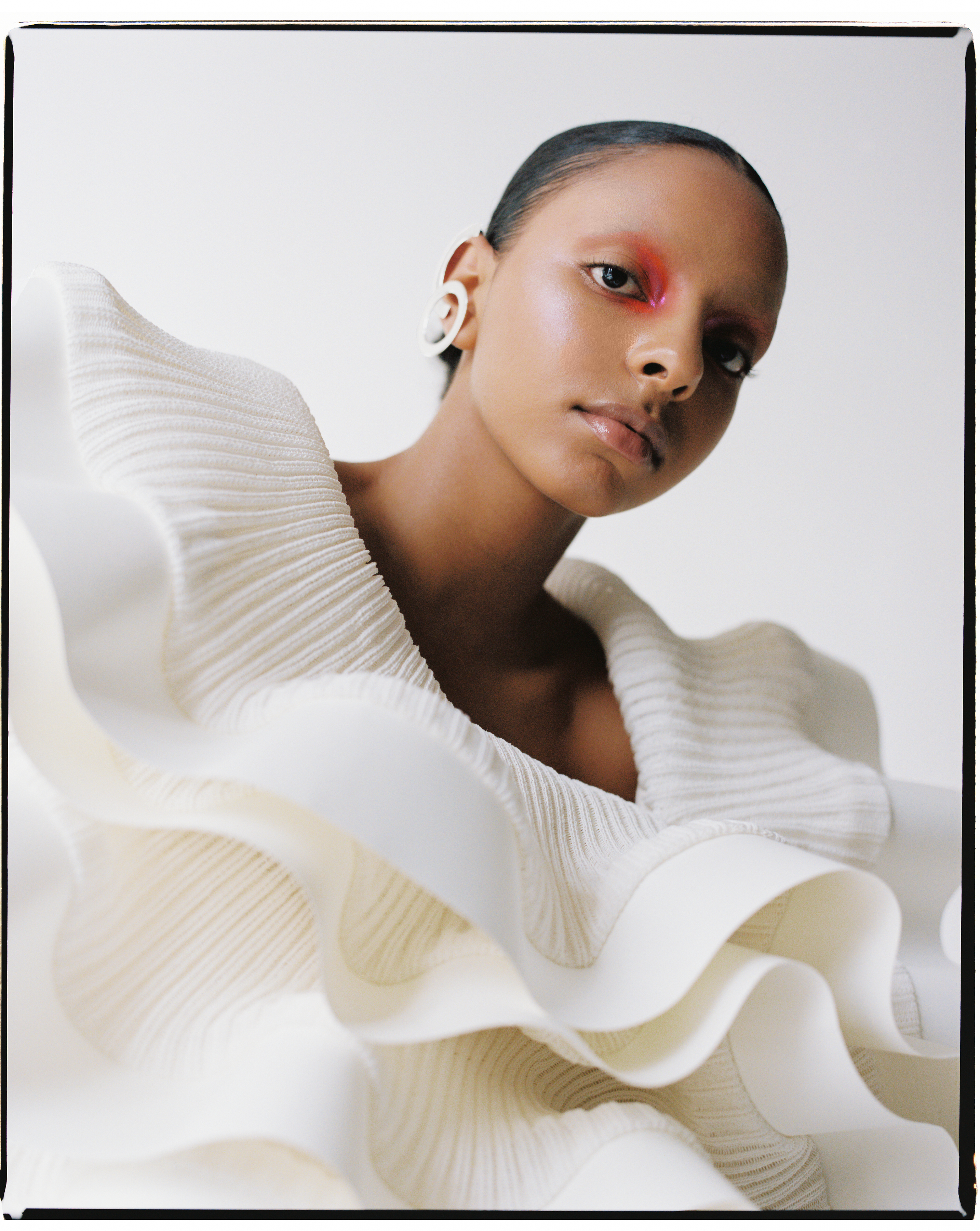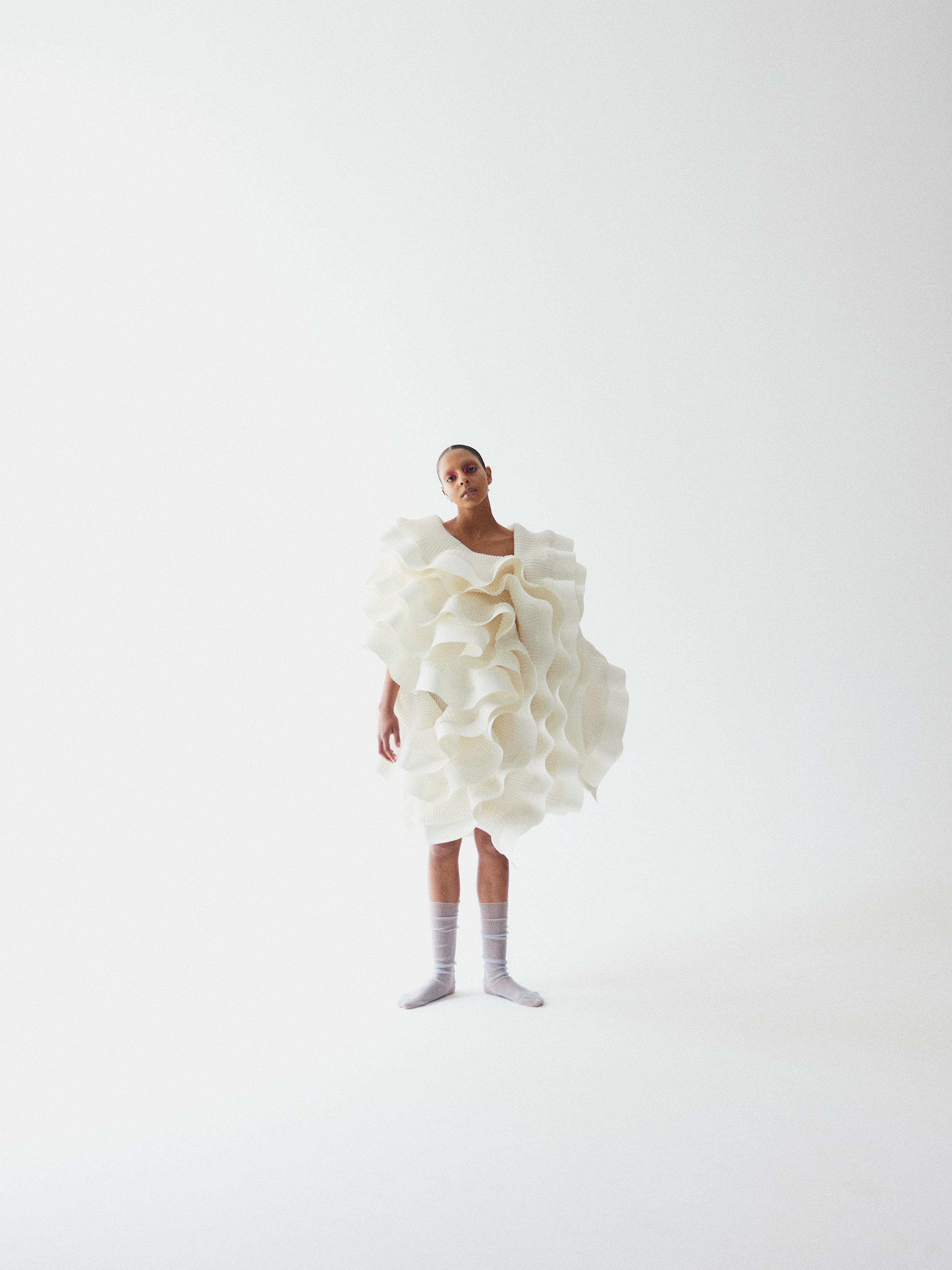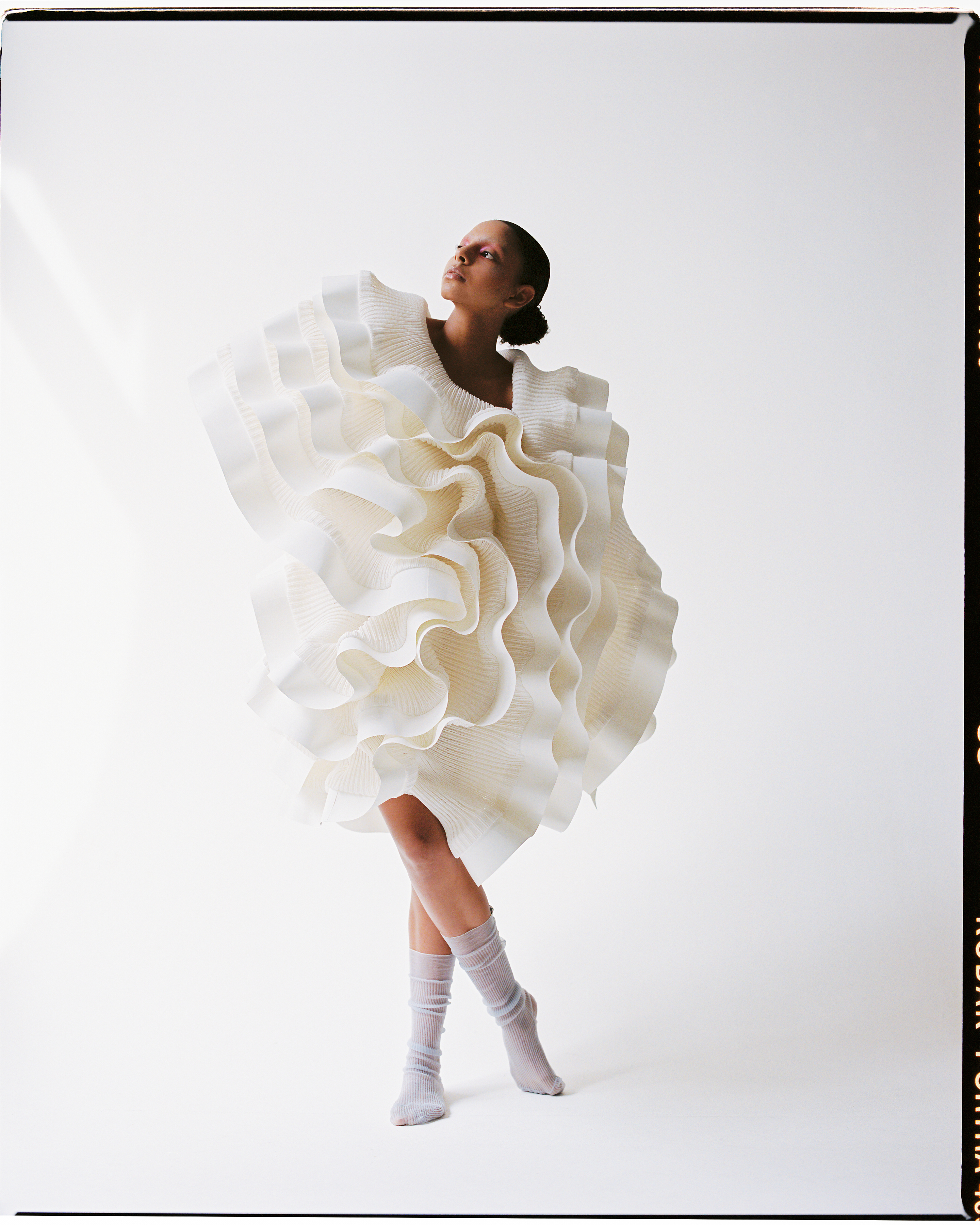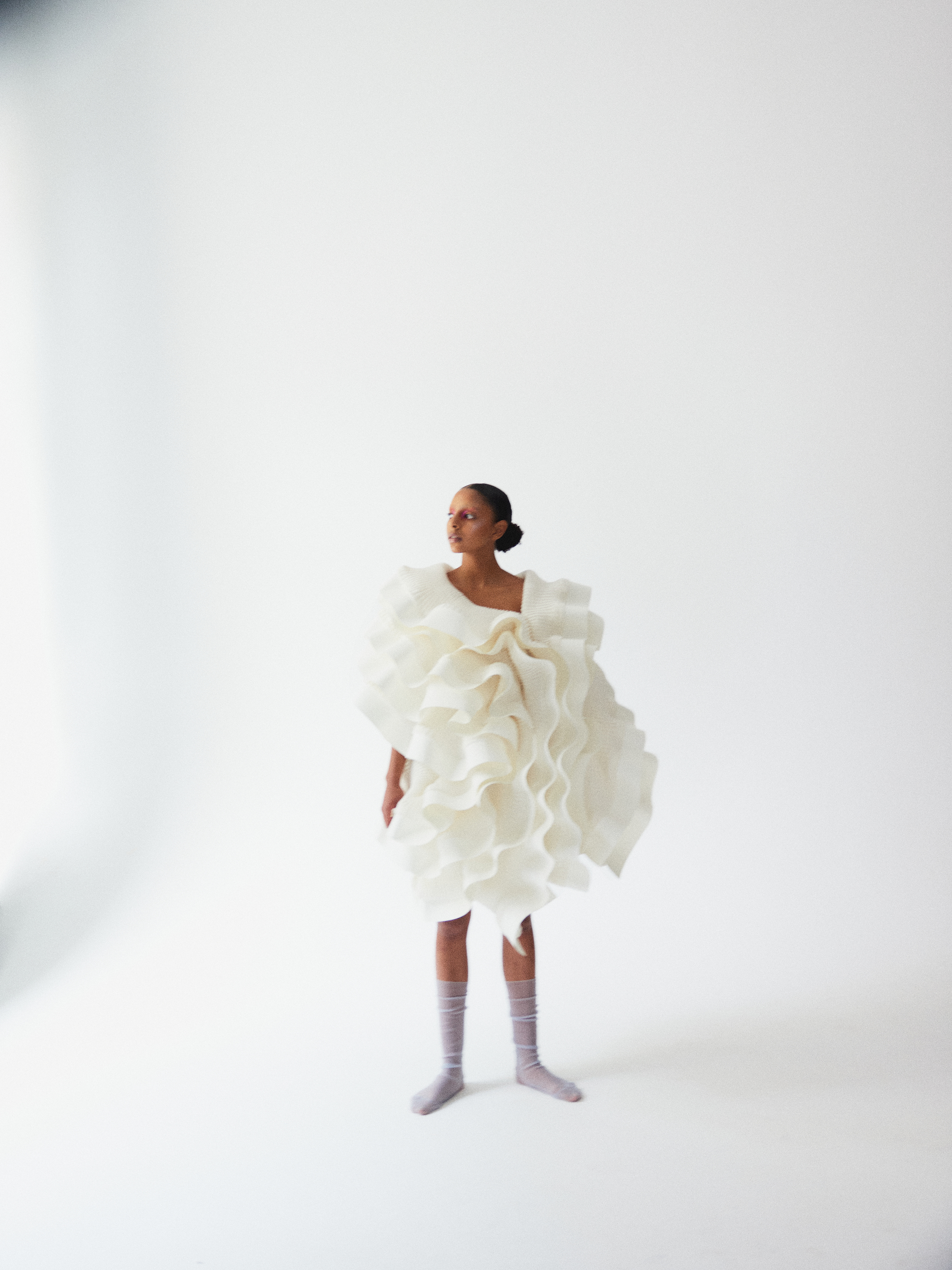
- Showpiece: Paper dress
- Circular design

A monomaterial showpiece made from 100% cellulose. The knitted garment is made of paper yarn, 300 g cardboard and tencel threads which enables full recyclability without having to separate the components. The concept of creating a circular showpiece from paper shows consumers that garments can be made from alternative materials and also what monomaterial entails.
100% paper yarn, thread in lyocell
Stina Randestad
The aim of the project was to create a striking showpiece that draws attention while still designed for circularity. This garment show that sustainable design doesn’t necessarily mean lack of expression. It also incorporates circular thinking into environments where garments are used occasionally and where you don’t expect to find circular and sustainable materials and solutions. The paper used in the project was sponsored by Lessebo Paper AB.






All group objects:
Each decision during product development affects sustainability and circularity. To develop products with lower environmental impact, the design team needs to be well aware of each component and process, and their individual and combined effect on the final product and its longevity.
One challenge is having comprehensive knowledge regarding sutainability when it comes to all of the components and processes that are a part of the production and lifetime of the garment. An additional challenge is implementing alternative design methods that do not require virgin components. Ongoing research inspires and shows methods to re-make existing products to have new functionalities and designs with an upgraded look.
With higher traceability when it comes to materials, components, and processes, there are increased possibilities for more conscious decisions. If communicated well, this gives the consumer a better basis for decisions.